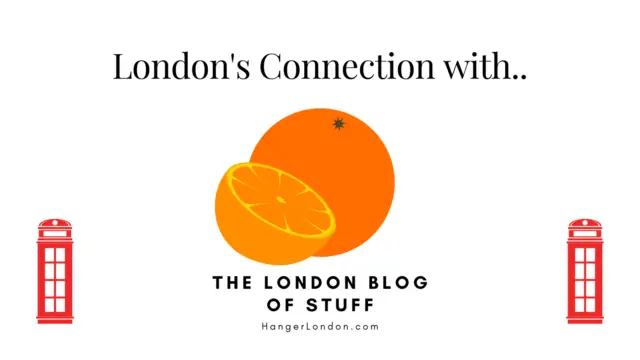Today, a Londoner is probably no more than a 10-minute walk to a store that sells Oranges. The fruit that originates and is associated with sunny climates, but did you know that there is a surprising connection between this fruit and the city of London?
London’s First Orange Shipment, to the King of England
The first known record of oranges being brought to London is in 1290 when a shipment of the fruit was sent from Spain as a gift to King Edward I. However, it was not until the 16th century that oranges became more widely available in London. In 1565, the first recorded shipment of oranges arrived from Valencia, Spain, to London. These oranges were a rare and exotic fruit at the time, and they were initially reserved for the wealthy and aristocratic members of society.
The arrival of oranges in London marked the beginning of a new era of trade, with the fruit becoming a highly valued commodity. Oranges were initially sold in apothecary shops for their medicinal properties, and they were also used in perfumes and other luxury goods. As the demand for oranges grew, so did their availability and affordability, making them a popular food for all classes.
Oranges were prized for their medicinal properties and were initially only available to the wealthy elite. However, as trade routes expanded, oranges became more widely available and popular.
In London, the first mention of oranges dates back to the 16th century. Oranges were initially imported from Portugal, but as trade with Spain grew, Seville oranges became the preferred variety. These bitter oranges were used to make marmalade, a preserve that became a staple of British breakfasts.
Oranges quickly became an integral part of British culture, with the fruit being featured in literature, art, and music. In William Shakespeare’s play, “Henry IV,” the character Falstaff famously declares, “Let the sky rain potatoes, let it thunder to the tune of ‘Green Sleeves,’ hail kissing-comfits, and snow eringoes; let there come a tempest of provocation, I will shelter me here.” In this passage, eringoes refer to oranges, demonstrating their popularity at the time.
The Orange and London Christmas Connection
However, it wasn’t just marmaladed that cemented the connection between oranges and London. In the 19th century, oranges became associated with Christmas. Oranges were a luxury item and were often given as a gift during the holiday season. This tradition was particularly popular in the East End of London, where families would save up to buy oranges for their children. Oranges were also used to decorate Christmas trees, a practice that dates back to Victorian times.
The association between oranges and Christmas continued into the 20th century, with the introduction of Terry’s Chocolate Orange in 1932. This iconic British treat is made up of chocolate shaped like an orange and divided into segments, mimicking the fruit itself. The Chocolate Orange has become a staple of Christmas in the UK, and it’s hard to imagine the holiday season without it.
Oranges have also played a role in London’s cultural identity. The Cockney rhyming slang for “Orange Peel” is “feel,”.
In conclusion, oranges may not have originated in London, but they have become embedded into the city’s diet. From marmalade to Christmas treats to joggers, oranges have left their mark on the capital.




